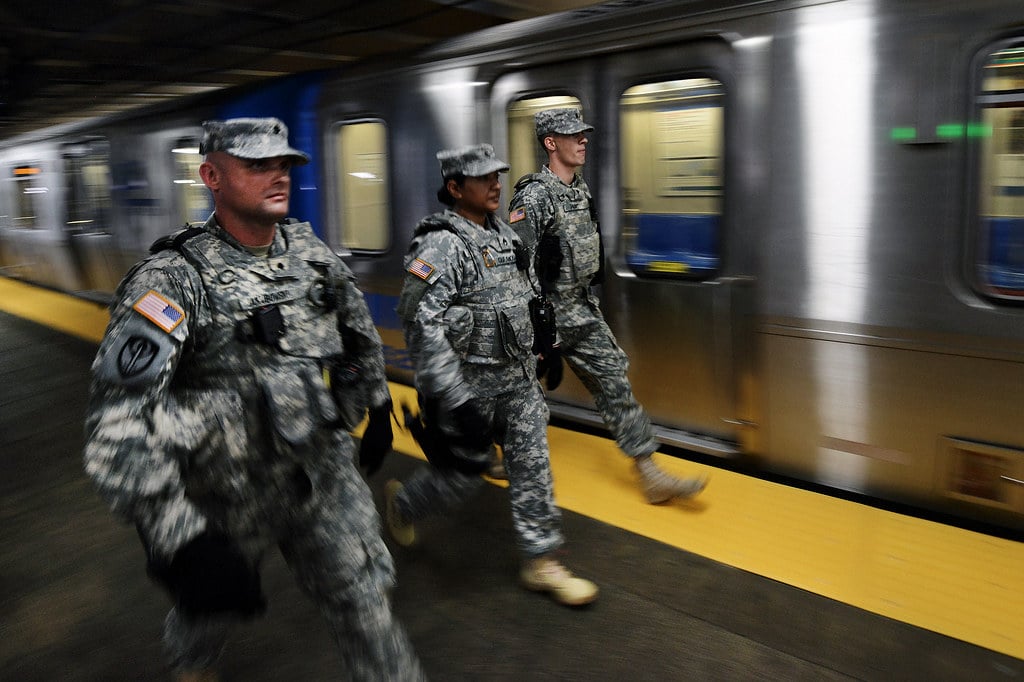Key Takeaways
- Judge April Perry halted the National Guard deployment to Chicago
- She cited Hamilton’s warning about a president misusing a state militia
- The court found no rebellion to justify federal troops in Illinois
- Perry stressed that protests at the ICE center did not become riots
- The decision challenges federal power to punish states
Why the National Guard deployment was blocked
A federal judge reviewed President Trump’s plan to send Texas troops to Chicago. She began by quoting Alexander Hamilton’s warning in the Federalist Papers. Hamilton dismissed fears that a president would use one state’s militia to invade another. Yet Illinois and Chicago argue that is exactly the plan today. Judge April Perry then weighed the legal rules for sending the National Guard. She found none of those rules apply here. Therefore, she blocked the National Guard deployment.
Historical limits on troop use
Hamilton believed a president would avoid “preposterous means” to seize power. Historically, courts set a high bar for sending troops against citizens. For example, after the Civil War, “rebellion” meant an armed uprising of large groups. Perry noted that past rulings and laws treated the Civil War as the classic rebellion. In contrast, she wrote, the administration offered no evidence of such danger now.
No evidence of a rebellion in Illinois
The president may federalize the National Guard if there is a real rebellion. However, Perry said nothing near that level exists in Illinois. She explained that no memo shows a finding of rebellion or its threat. In fact, the court could not find any data to support a rebellion claim. Thus, she concluded the National Guard deployment lacked legal basis.
Protests at the ICE center versus real riots
Next, Perry examined claims about protests at the ICE facility in Broadview. Federal lawyers said local police could not control protesters there. In reality, Broadview officers kept the area safe. The ICE center stayed open without disruptions. No ICE vehicles ever failed to enter or exit. Consequently, the court saw no need for extra troops.
A troubling trend: confusing protests with riots
Judge Perry warned against calling every protest a riot. She wrote that bias and lack of objectivity clouded the administration’s view. She stressed the difference between peaceful critics and violent rioters. Moreover, she noted protests can test ideas without breaking laws. Ultimately, she found the government’s view unreliable.
What this ruling means for federal power
This decision highlights key limits on presidential power. First, the president cannot deploy the Guard to punish states whose leaders differ. Second, courts still guard against overreach in domestic troop use. Third, federal troops cannot replace local law enforcement without real emergencies. Finally, the ruling may influence future disputes over state versus federal authority.
Looking ahead in federal-state relations
The case could set a new precedent on troop deployment. States may feel safer pushing back on what they see as executive overreach. Meanwhile, the administration must better document any threat before sending troops. This ruling reminds all parties that the Constitution sets firm limits.
Frequently Asked Questions
Why did the judge block the National Guard deployment?
The judge found no legal grounds for federalizing troops. She noted the Constitution allows Guard use only for serious rebellion or invasion. Since no such threat existed in Illinois, she halted the deployment.
What did Hamilton say about militia misuse?
Alexander Hamilton argued in the Federalist Papers that a tyrant would avoid “preposterous means” to seize power. He dismissed fears of using one state’s militia against another as unlikely. Judge Perry used this quote to show that today’s scenario matches his old warning.
Did protests at the ICE center turn violent?
No. Local police kept protests under control. The ICE facility remained open and operational. No vehicles faced blockade, and no violent clashes justified military involvement.
How could this ruling affect future troop deployments?
The decision sets a clear limit on when a president can send the National Guard domestically. It makes future administrations prove a real and serious threat before deploying troops. It also strengthens states’ rights against federal overreach.
